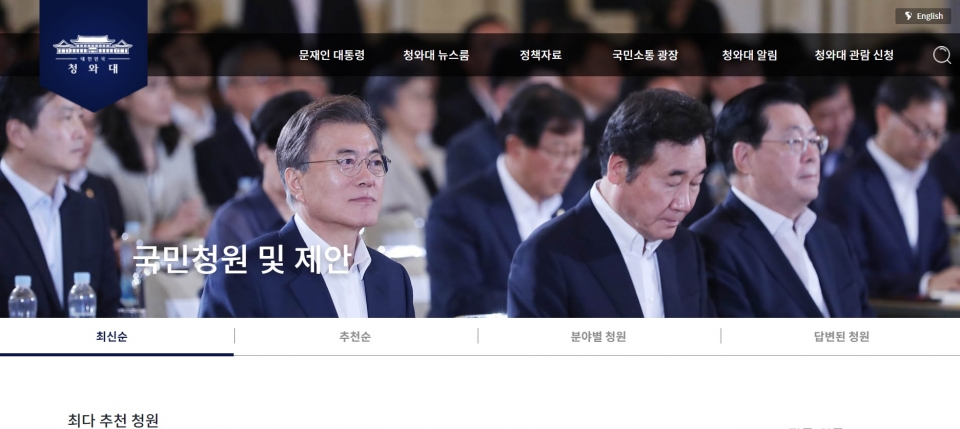
The online presidential petition system, which allows people to file a petition anonymously, has seen more than 357,000 petitions made since it was launched in August 2017 by the Moon Jae-in administration. And with the government’s pledge to respond to petitions that gain more than 200,000 signatures within a month, the online petition board has become a popular route for Koreans to express their concerns and complaints to the president.
The petitions, ranging from those related to trivial daily difficulties to crimes and unfair judgment, have triggered discussions on social norms, ethics and the law, reflecting the public sentiment. However, there are also petitions asking for the petition board to be abolished, citing how it has become a source of “needless conflicts” and even an arena for witch hunts.
This system has led to some substantive policy changes. For example, a revision bill of the Road Traffic Act to toughen penalties against drunk drivers recently passed the National Assembly, after a presidential petition exposed an accident in which Yoon Chang-ho was killed by a drunk driver. It was also on the petition board that the problem of accidentally leaving young children inside school buses was raised. Lawmakers responded by revising the law to require drivers to check buses to make sure no one is left inside.
However, there is criticism about the relative lack of intervention by the site administrator. People also express worry about the system has become a ground for baseless slander. A recent assault case involving three men and two women at a bar near Isu Station triggered a gender war online, when the women uploaded a petition claiming that they were attacked by the men for their feminist choices. The petition gathered more than 362,500 signatures soon after it was posted on Nov. 14. However, police investigation found that the conflict started after one of the women lightly hit one of the men on the hand. There are also some very personal and sometimes irrational petitions, such as one that demanded the government establish military brothels.
While 6 in 10 people appear to support the presidential petition system, many of them think that the revision should be made. According to the Realmeter’s survey released on June 20, 20.1 percent said they are satisfied with the current system, while 40.2 percent said a revision is needed. 32 percent said the system incited social conflicts and should be abolished, while 7.7 percent answered that they do not know.
In response to the request to revising the system, the presidential office recently announced that they would introduce revised system taking into account the previous problem. Until now, the petition system only asks people to log in using their social network accounts to make or sign petitions. Their names will not revealed. This has led to some abusing the system by signing a petition multiple times and the presidential office recently banned users from logging in with Kakao account after finding such actions. Specific guidelines on the direction of improvement will be released in January this year.
For the online petition to become legitimate means of communication between the Blue House and the public, the change should come from both the administrative body and people.


